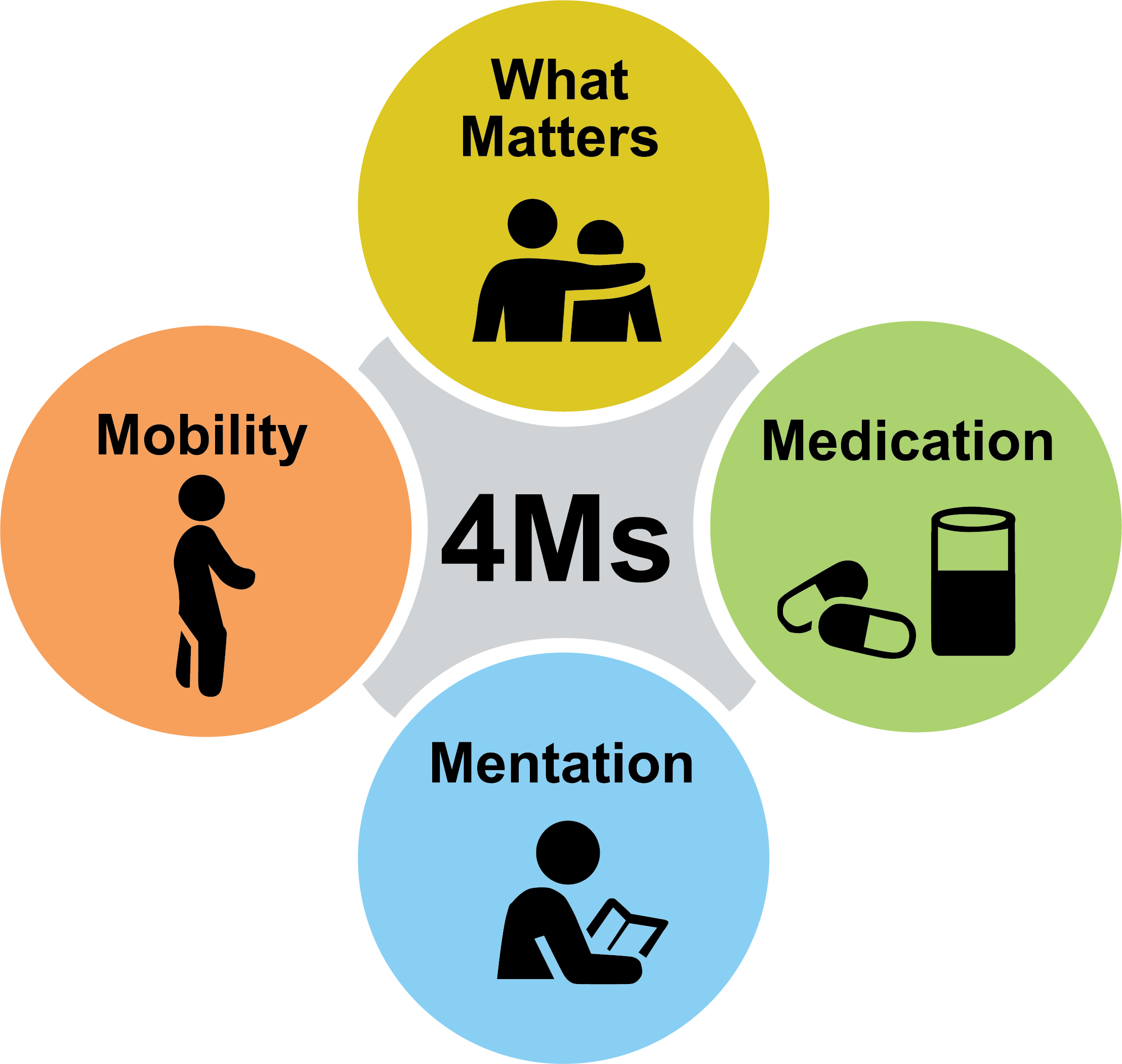4Ms Behavioral Health
Age-Friendly Care for Mental Health
and Substance Use Disorders
4Ms of an Age-Friendly Health System
The 4Ms of an Age-Friendly Health System (What Matters, Medication, Mentation, and Mobility) is an evidence-based framework for assessing and treating critical issues for older adult health. Health systems implementing the 4Ms, typically focused on older adults’ health needs in hospitals and primary care settings, have consistently demonstrated improved patient satisfaction, fewer emergency room visits, shorter hospital lengths of stay, fewer hospital readmissions, and functional improvement (see Mate et al., 2021). This framework has been implemented across more than 2,400 diverse health systems with little geriatric training, per the Institute for Healthcare Improvement (IHI).

4Ms Behavioral Health
A uniquely defined set of 4Ms tailored for older adults with behavioral health needs that can be used by mental health and substance abuse clinicians in diverse settings is optimal for broad dissemination of older adult mental health training. Much like the original 4Ms for hospitals and primary care, the 4Ms Behavioral Health (4M-BH) provides a flexible framework for generalist clinicians with little to no geriatrics training to effectively assess and act on the unique behavioral health needs of older adults. Building on the 4Ms of an Age-Friendly Health System, the 4M-BH framework was adapted by the E4 Center of Excellence for Behavioral Health Disparities in Aging. The E4 Center National Advisory Board, comprised of aging expert psychologists, social workers and psychiatrists, identified a wide range of possible additions and modifications to the framework for behavioral health clinicians based on existing literature, then streamlined to the essential elements required with every older adult in a behavioral health setting.
The 4M-BH framework was pilot-tested in three US Community Mental Health Centers with generalist mental health clinicians who had little to no training in working with older adults. Participants engaged in a three-hour training webinar followed by four monthly one-hour sessions that included a brief presentation on one of the 4Ms-BH with links to all 4Ms and group case discussion to solidify application of the framework, as well as one final session discussing application of the full framework. Participant knowledge increased for each of the 4Ms-BH, with Medication and Mobility showing greatest improvement at 17% and 15%, respectively. Effect sizes for practice behavior change in each of the 4Ms-BH assessment and action activities from pre-training to post-training were large (Cohen’s d range = .82 – 1.66, p≤.01).
.
RESOURCES
The 4Ms-BH training program is being offered publicly by the E4 Center in 2024 – check out the E4 Center calendar for dates.
4Ms Behavioral Health (4Ms-BH) Checklist
Emery-Tiburcio EE, Porter L, Wang S, Buehler S. The 4Ms of an age-friendly health system in behavioral health: pilot test of an educational framework. Aging Ment Health. 2024 Aug 12:1-8. doi: 10.1080/13607863.2024.2389543. PMID: 39135301.
CATCH-ON Toolbox of freely available assessment measures
.
Additional resources for addressing the 4Ms are available HERE.
.
For more information, please contact [email protected].




